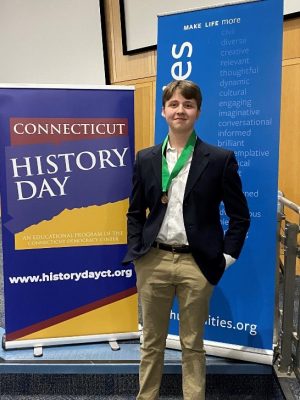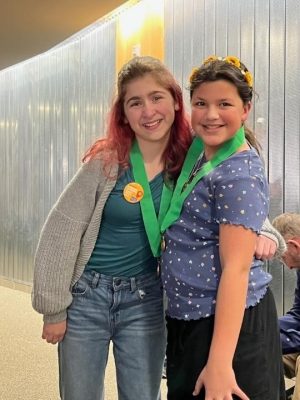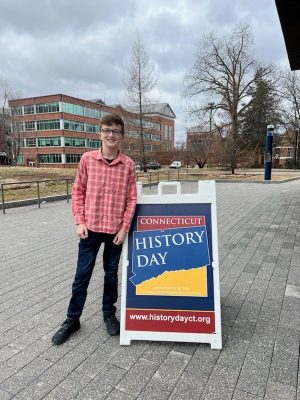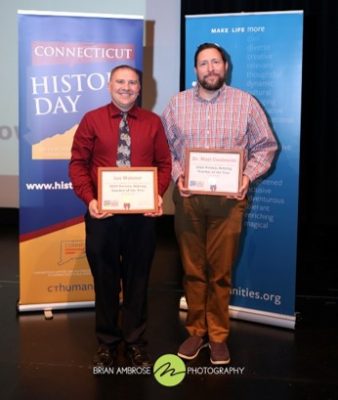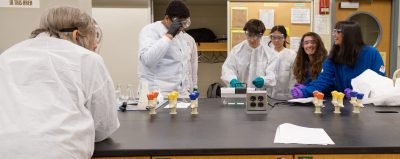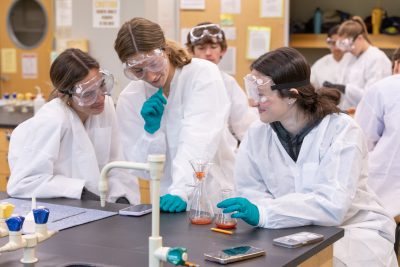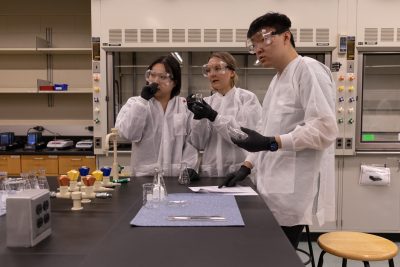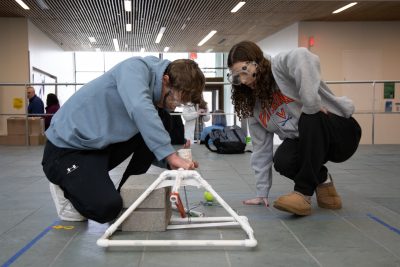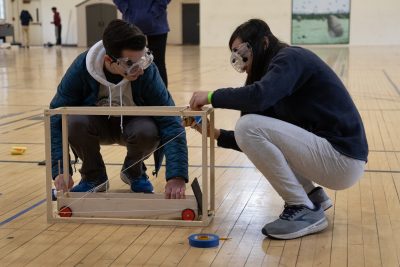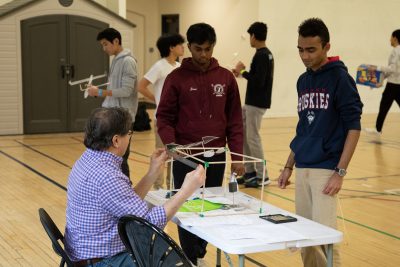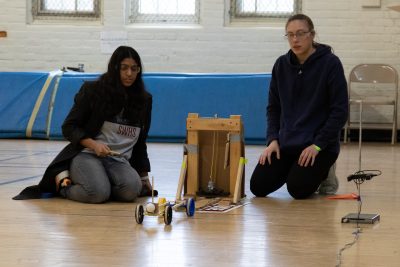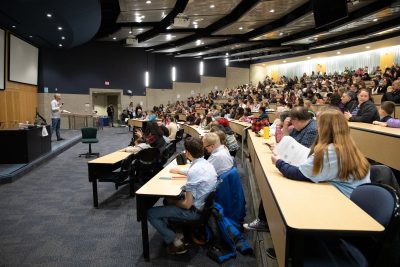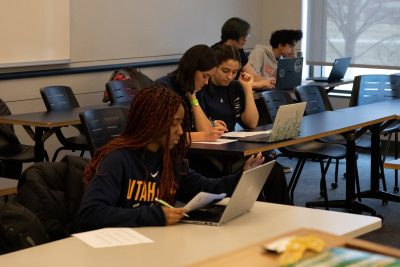By Jessica Dunn | Photos by Gordon Daigle and Mike Illuzi
UConn ECE Faculty Coordinator of the Year, Dr. Chunsheng Yang, brought back the UConn ECE Chinese Talent show to the benefit of 175 students this past March. With 100 UConn ECE Students, and about 75 UConn undergraduates, this event provided a space for students to work together to demonstrate their Chinese skills through various abilities and learn to embrace cultural diversity. As Dr. Yang explained in an interview for the UConn Daily Campus, “the Chinese talent show provides an avenue for both high school Chinese learners and UConn undergrad Chinese learners to showcase their Chinese language skills and have fun while socializing with peers both from other CT high schools and UConn undergraduate students.”
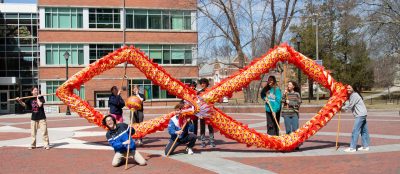
Participants from Connecticut high schools were students enrolled in UConn Chinese 1114 through UConn ECE and represented Amity Regional High School, Simsbury High School, Granby Memorial High School, Hall High School, Miss Porter’s School, and Norwich Free Academy. Along with attendance from high schools across the state, there was also a wide variety of talents showcased at the event. From a Kung Fu performance from Amity Regional High School and a Gourd Flute performance from Miss Porter’s School to an authentic Dragon Dance from Hall High School, the talent was extraordinary, and it was evident the students worked very hard throughout the year to improve their Chinese language skills and gain the confidence to perform at UConn in front of their peers.
We commend all students for their willingness to participate and look forward to offering this event to future UConn ECE students.
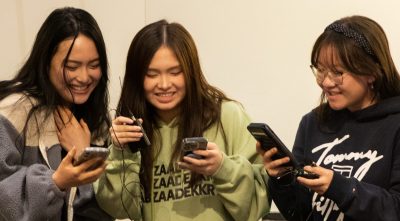
UConn ECE项目负责人杨春生是 2023 年度 ECE Faculty Coordinator Award获得者,他于今年3月组织了UConn ECE中文才艺秀。此次活动汇聚了100 多名UConn ECE 学生和75名 UConn 本科生,为学生提供了一个共同展示中文技能、欣赏文化多样性的平台。正如杨博士在接受UConn Daily Campus采访时所说:“中文才艺秀为高中中文学习者和 UConn 中文学习者提供了展示中文技能、与其他高中和 UConn本科生社交的机会。”
才艺秀的高中参与者都是UConn ECE中文课程的学生,包括Amity Regional High School、Simsbury High School、Granby Memorial High School、Hall High School、Miss Porter’s School 和 Norwich Free Acad¬emy。来自不同高中的同学展示了各种各样的才艺,从 Amity Regional High School 的功夫表演,到 Miss Porter’s School 的葫芦丝表演,到 Hall High School 的正宗舞龙表演,同学们个个才华横溢,在展示中文语言能力的同时,也表现出精湛的表演才能。
我们为所有参与的同学喝彩,并期待将类似活动扩大到UConn ECE的其他项目中去。
Translated by UConn ECE Chinese Faculty Coordinator, Dr. Chunsheng Yang
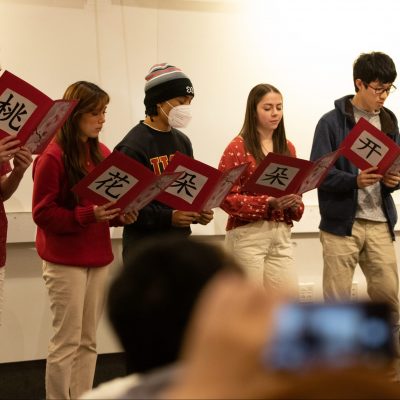
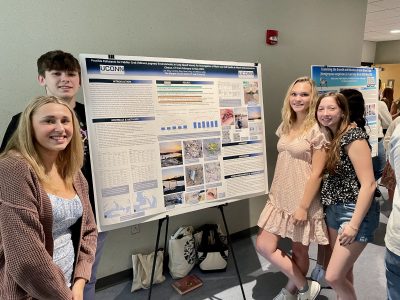
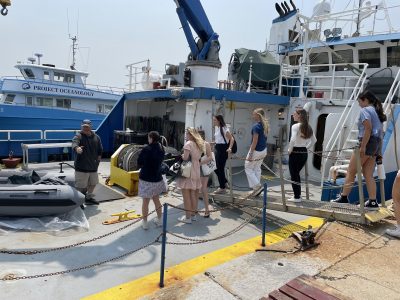
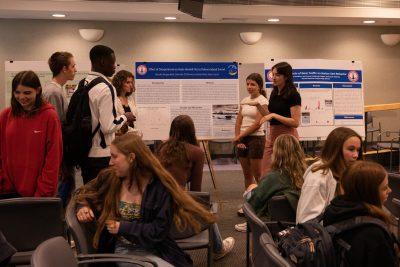
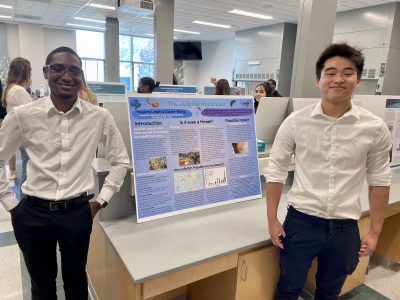
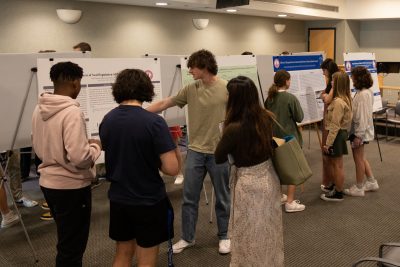
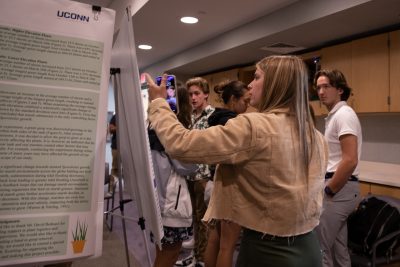
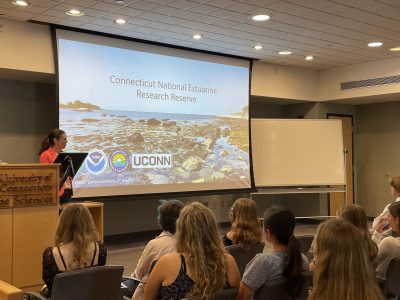
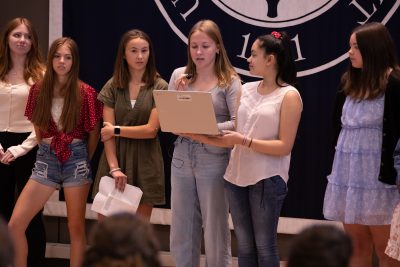
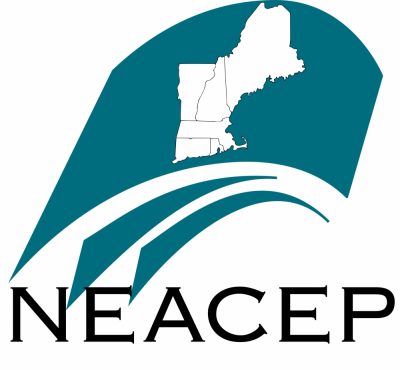 In their first post-pandemic regional conference, attendees from the six New England states and beyond gathered at the University of Rhode Island, Feinstein Campus in Providence for the
In their first post-pandemic regional conference, attendees from the six New England states and beyond gathered at the University of Rhode Island, Feinstein Campus in Providence for the 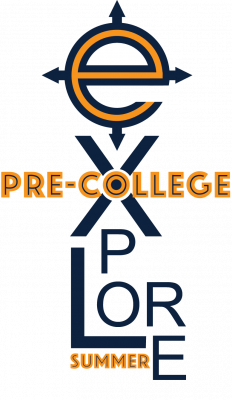
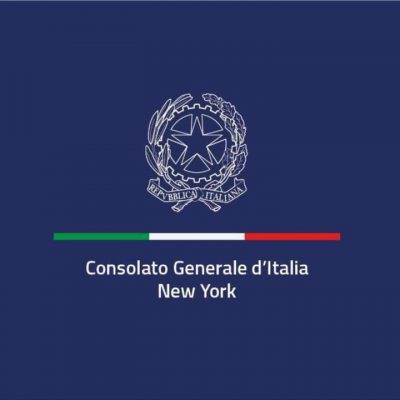 This winter, Italian Studies at UConn (ILCS) launched a pilot Professional Development workshop series for teachers of Italian across Connecticut and the Tri-State area. The series, entitled, “Lasciatemi cantare: Teaching Italian Language and Culture through Music,” was generously supported by funds from the Consulate General of Italy in NY and ECE and was delivered in hybrid form – simultaneously online and in person. The workshop’s four Saturday morning sessions in January and February focused on using music theory and Italian theater, opera, and popular music in the language classroom. UConn Italian Ph.D. candidates David Lara and Rosy Pitruzzello (who is also a Plainville HS teacher) led two sessions each with presentations and interactive exercises aimed at expanding the didactic benefits of incorporating different kinds of music into language instruction. The combination of language pedagogy, songs, and music videos led to lively discussions among the participants, all of whom came away with access to new materials, a collaborative space for continued development, and many practical applications for their classrooms. ILCS hopes to bring the workshop back next year with a different topic of focus. Please contact Tina Chiappetta-Miller with any suggestions at:
This winter, Italian Studies at UConn (ILCS) launched a pilot Professional Development workshop series for teachers of Italian across Connecticut and the Tri-State area. The series, entitled, “Lasciatemi cantare: Teaching Italian Language and Culture through Music,” was generously supported by funds from the Consulate General of Italy in NY and ECE and was delivered in hybrid form – simultaneously online and in person. The workshop’s four Saturday morning sessions in January and February focused on using music theory and Italian theater, opera, and popular music in the language classroom. UConn Italian Ph.D. candidates David Lara and Rosy Pitruzzello (who is also a Plainville HS teacher) led two sessions each with presentations and interactive exercises aimed at expanding the didactic benefits of incorporating different kinds of music into language instruction. The combination of language pedagogy, songs, and music videos led to lively discussions among the participants, all of whom came away with access to new materials, a collaborative space for continued development, and many practical applications for their classrooms. ILCS hopes to bring the workshop back next year with a different topic of focus. Please contact Tina Chiappetta-Miller with any suggestions at: 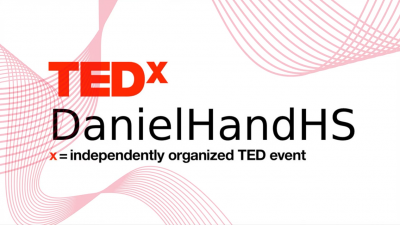 UConn ECE HDFS 1070: Individual & Family Development Instructor, Mr. Becker, from Daniel Hand High School gave a TEDx Talk about his passion for wellness and journey on becoming a teacher, called
UConn ECE HDFS 1070: Individual & Family Development Instructor, Mr. Becker, from Daniel Hand High School gave a TEDx Talk about his passion for wellness and journey on becoming a teacher, called 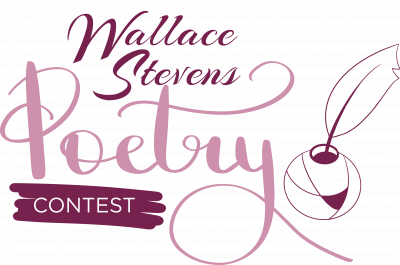
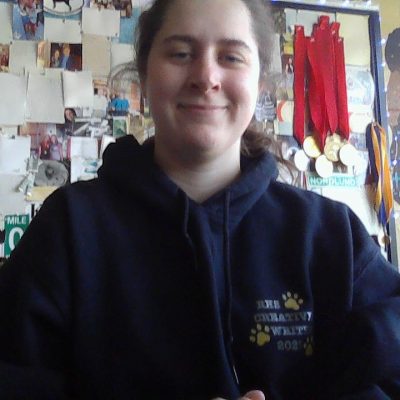 Grace Dehnel is a junior attending Rockville High School and is enrolled in the creative writing program. She enjoys writing poetry and is a Sunken Garden finalist.
Grace Dehnel is a junior attending Rockville High School and is enrolled in the creative writing program. She enjoys writing poetry and is a Sunken Garden finalist.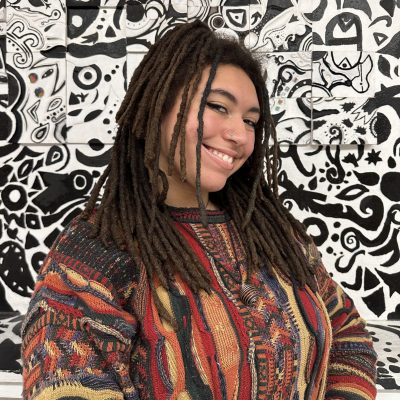
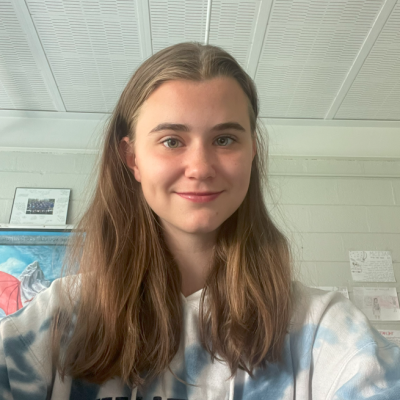 Natalie Crowley is a junior at Rockville High School and is a member of the creative writing program. She enjoys painting and is a part of the lacrosse team at her school.
Natalie Crowley is a junior at Rockville High School and is a member of the creative writing program. She enjoys painting and is a part of the lacrosse team at her school.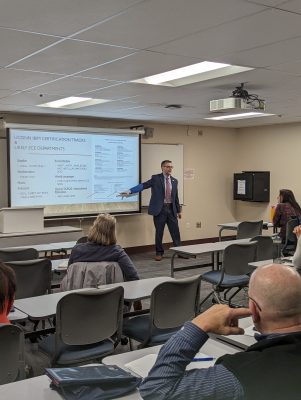
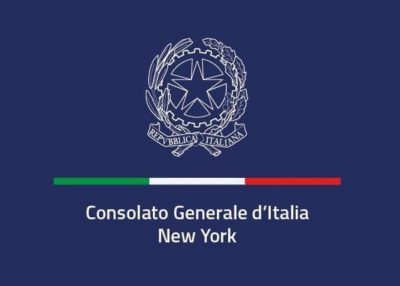

 Asian American Studies (Dr. Jason Chang)
Asian American Studies (Dr. Jason Chang) gricultural and Resource Economics (Dr. Emma Bojinova)
gricultural and Resource Economics (Dr. Emma Bojinova) Computer Science and Engineering (Mr. David Strimple)
Computer Science and Engineering (Mr. David Strimple) Communication (Dr. Svetlana Kalnova)
Communication (Dr. Svetlana Kalnova) Earth Sciences (Dr. Robert Thorson)
Earth Sciences (Dr. Robert Thorson)